*NURSING > QUESTIONS & ANSWERS > ARDS and Chest Trauma NCLEX Exam Study Questions with Complete Solution (All)
ARDS and Chest Trauma NCLEX Exam Study Questions with Complete Solution
Document Content and Description Below
ARDS and Chest Trauma NCLEX Exam Study Questions with Complete Solution It will be most important for the nurse to check pulse oximetry for which of these patients? a. A patient with emphysema and ... a respiratory rate of 16 b. A patient with massive obesity who is refusing to get out of bed c. A patient with pneumonia who has just been admitted to the unit d. A patient who has just received morphine sulfate for postoperative pain - ✔✔C Rationale: Hypoxemia and hypoxemic respiratory failure are caused by disorders that interfere with the transfer of oxygen into the blood, such as pneumonia. The other listed disorders are more likely to cause problems with hypercapnia because of ventilatory failure. Cognitive Level: Application Text Reference: pp. 1799-1800 Nursing Process: Assessment NCLEX: Physiological Integrity A nurse working in the ED is caring for a pt following an acute chest trauma. Which of the following findings indicates to the nurse the client is possible experiencing a tension pneumothorax? a. Collapsed neck veins on the affected side b. Collapsed neck veins on the unaffected side c. Tracheal deviation to the affected side d. Tracheal deviation to the unaffected side - ✔✔d. Tracheal deviation to the unaffected side * A tension pneumothorax results from free air filling the chest cavity, causing the lung to collapse and forcing the trachea to deviate to the unaffected side * DISTENDED neck veins are an expected finding of a tension pneumothorax The nurse will monitor for clinical manifestations of hypercapnia when a patient in the emergency department has a. chest trauma and multiple rib fractures. b. carbon monoxide poisoning after a house fire. c. left-sided ventricular failure and acute pulmonary edema. d. tachypnea and acute respiratory distress syndrome (ARDS). - ✔✔A Rationale: Hypercapnia is caused by poor ventilatory effort, which occurs in chest trauma when rib fractures (or flail chest) decrease lung ventilation. Carbon monoxide poisoning, acute pulmonary edema, and ARDS are more commonly associated with hypoxemia. Cognitive Level: Application Text Reference: p. 1800 Nursing Process: Assessment NCLEX: Physiological Integrity A nurse is assisting the provider who is performing a thoracentesis at the bedside of a pt. Which of the following actions should the nurse take? Select all that apply a. Wear goggles and mask during the procedure b. Cleanse the procedure area with an antiseptic solution c. Instruct the client to take deep breaths through the procedure d. Position the client laterally on the affected side before the procedure e. Apply pressure to the site after the procedure - ✔✔A B E a. Wear goggles and mask during the procedure * reduces the risk of exposure to pleural fluid b. Cleanse the procedure area with an antiseptic solution [Show More]
Last updated: 2 years ago
Preview 1 out of 18 pages
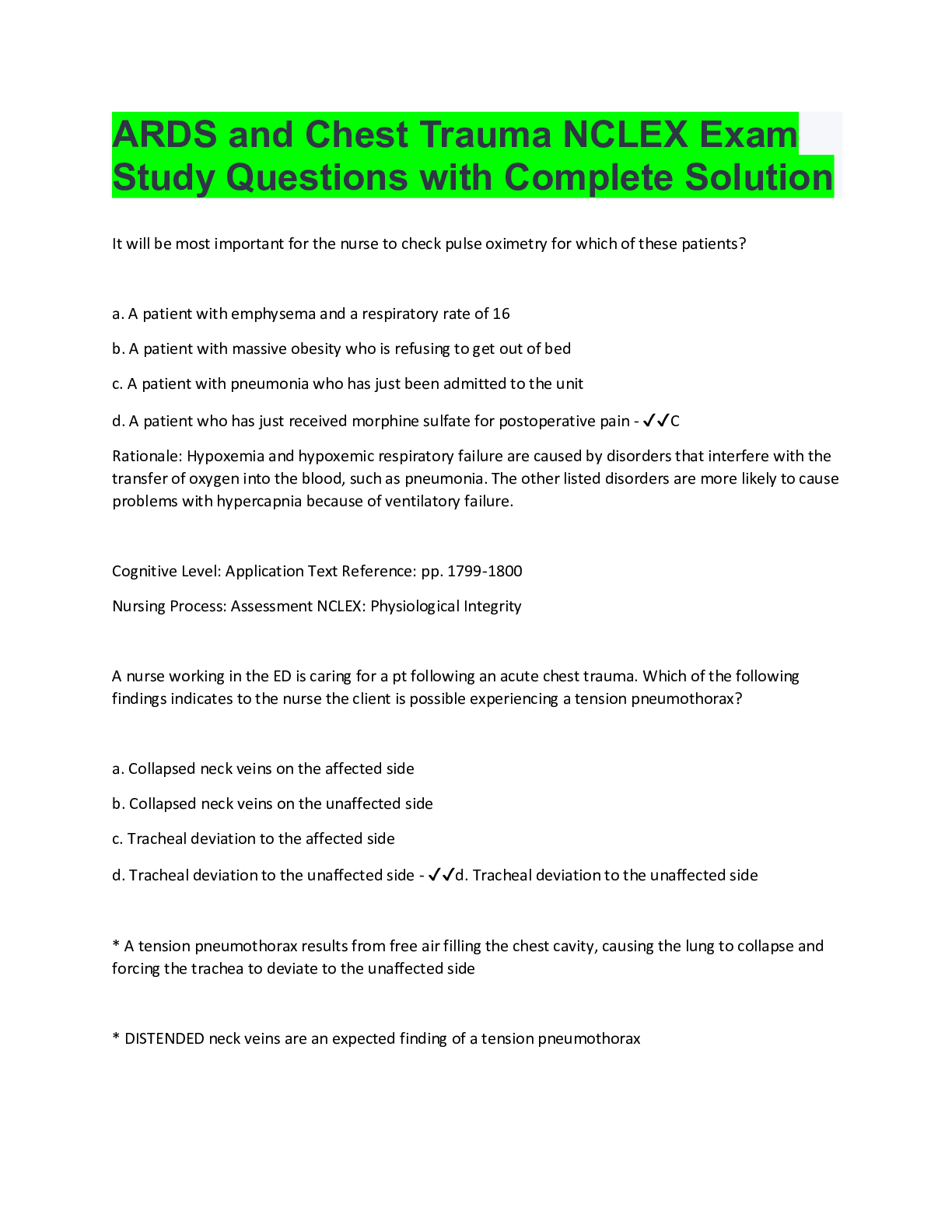
Buy this document to get the full access instantly
Instant Download Access after purchase
Buy NowInstant download
We Accept:

Reviews( 0 )
$9.00
Can't find what you want? Try our AI powered Search
Document information
Connected school, study & course
About the document
Uploaded On
May 27, 2022
Number of pages
18
Written in
Additional information
This document has been written for:
Uploaded
May 27, 2022
Downloads
0
Views
95



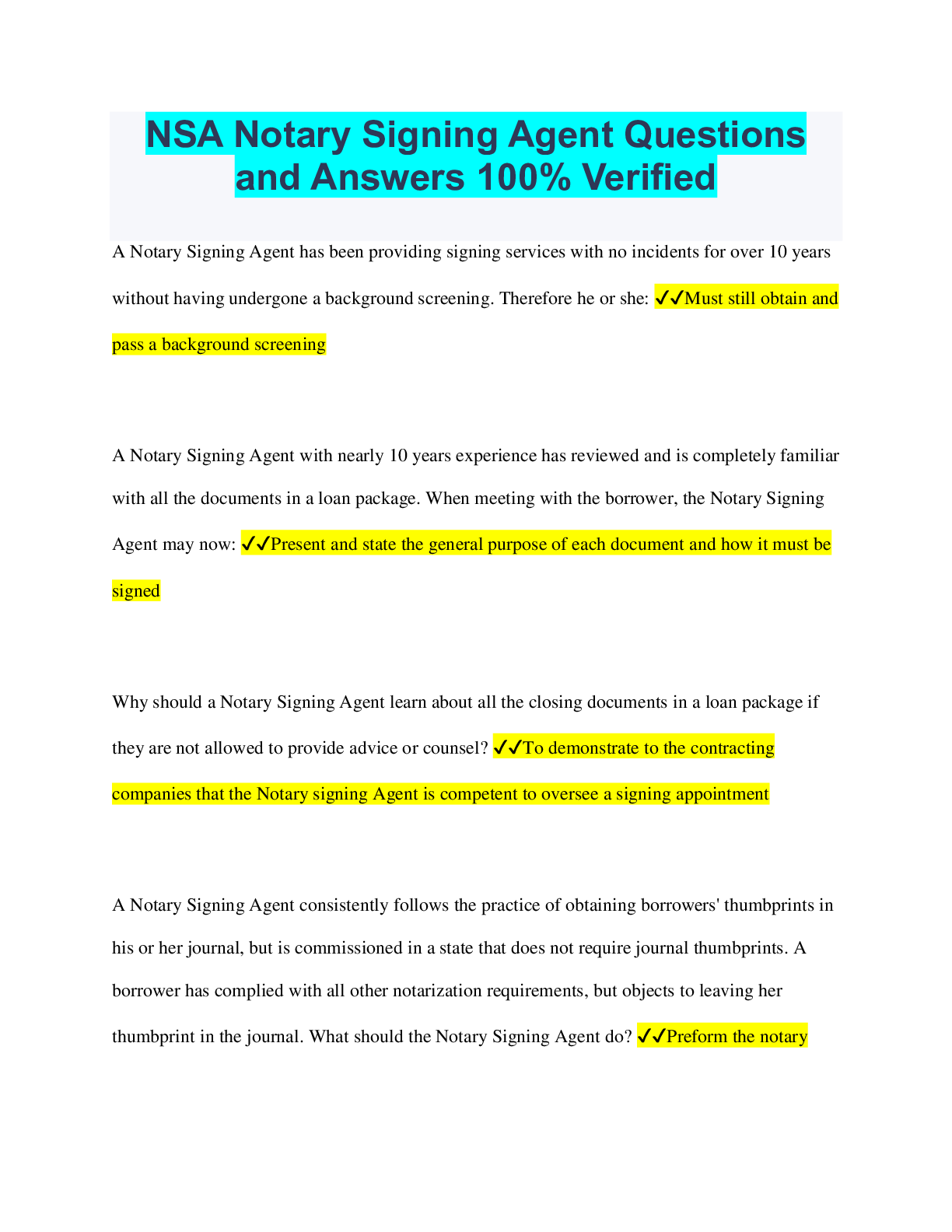
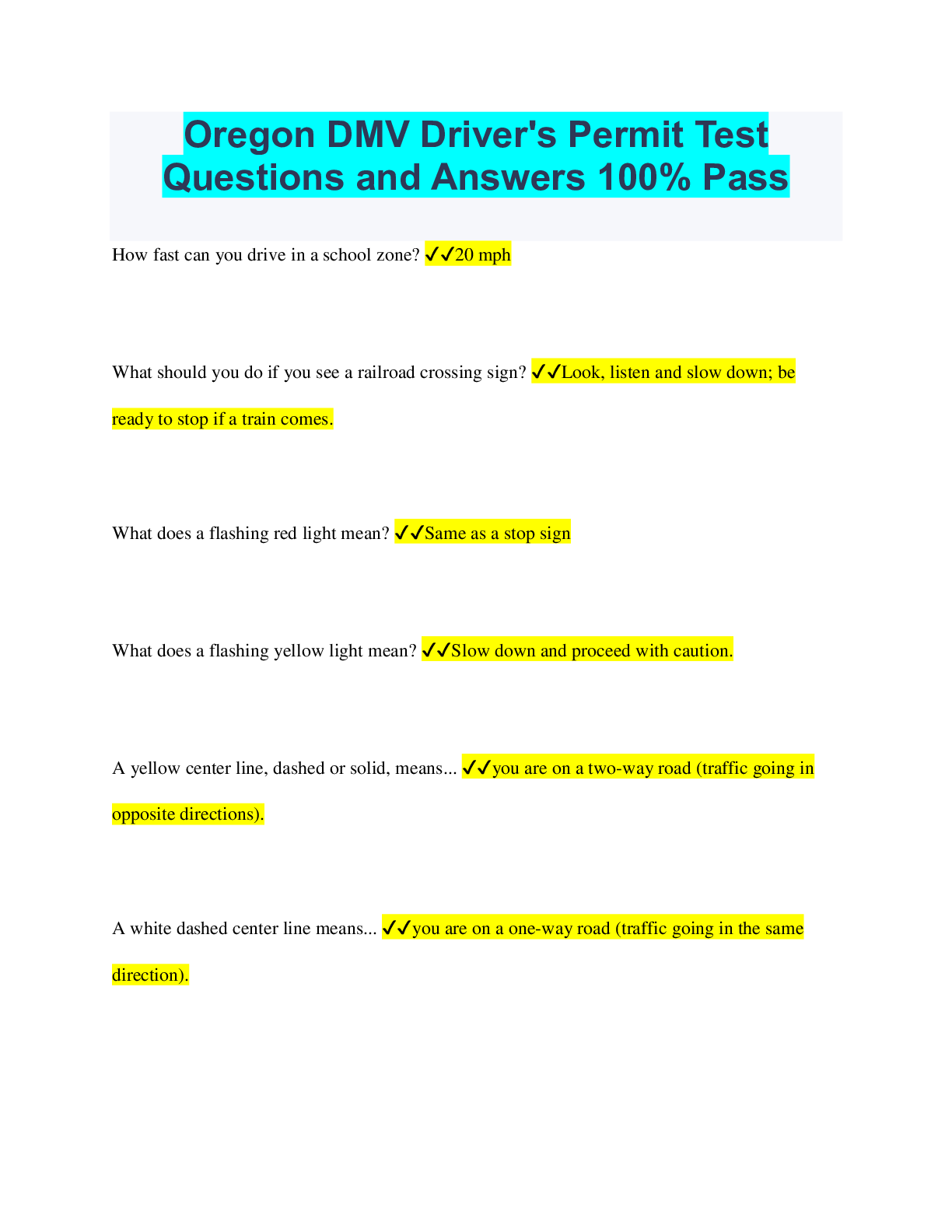
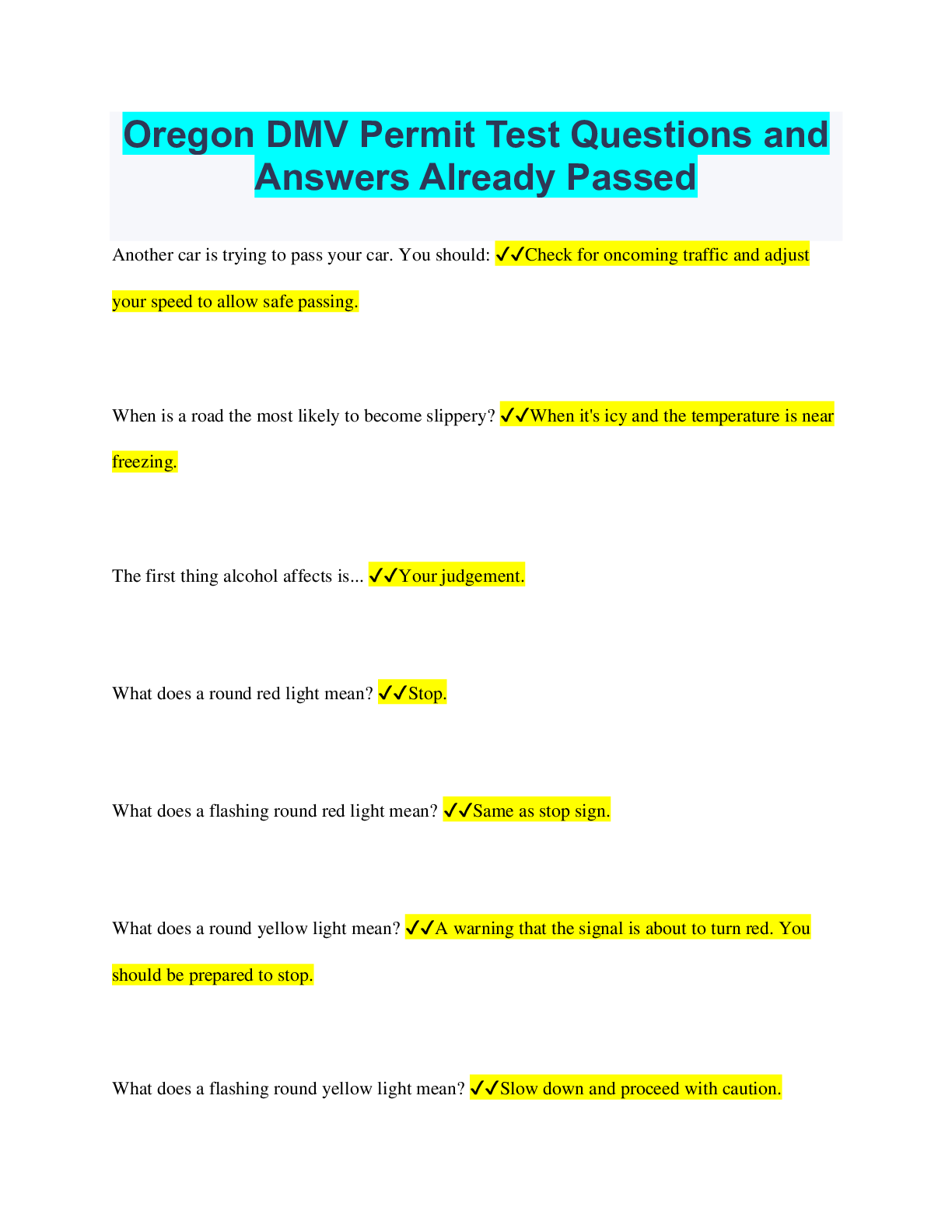
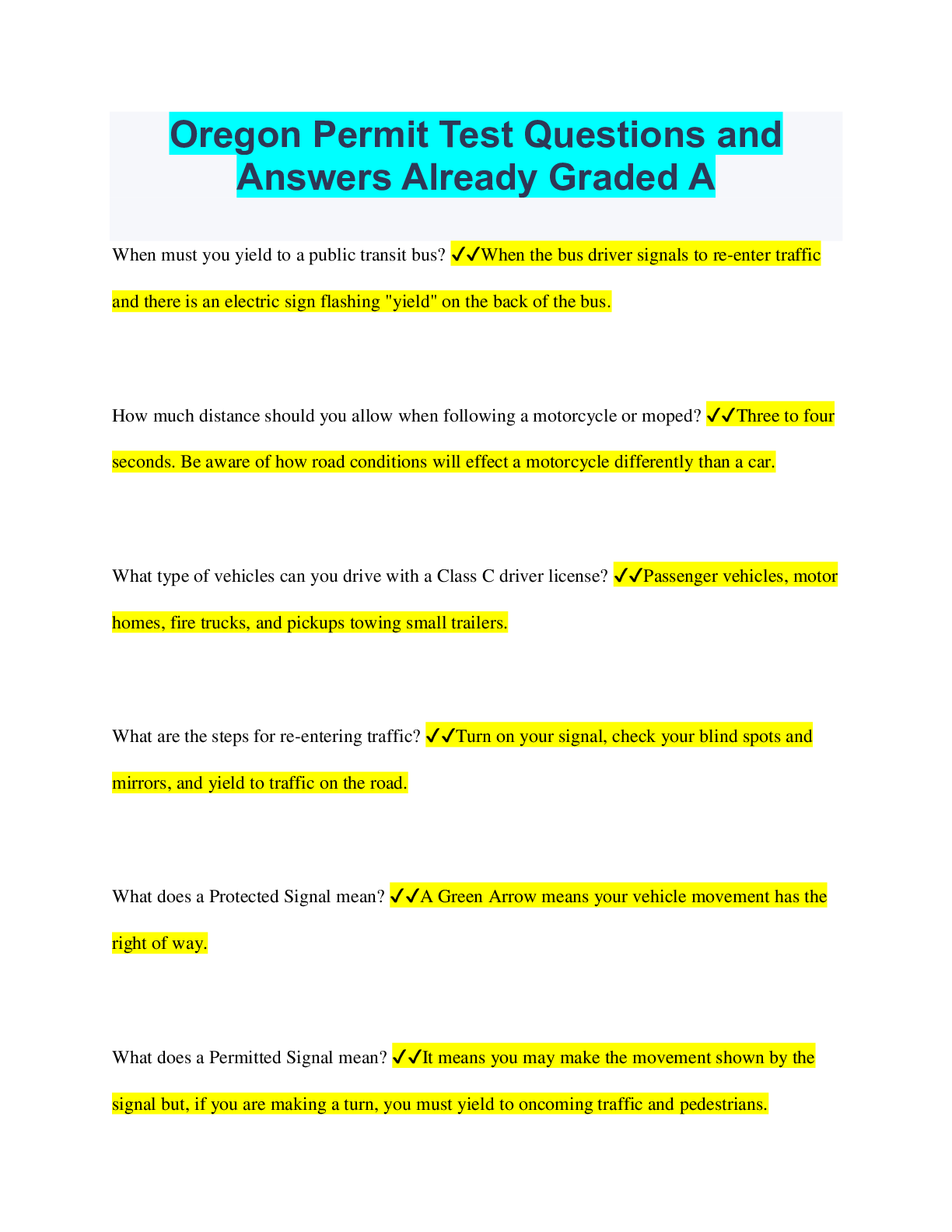
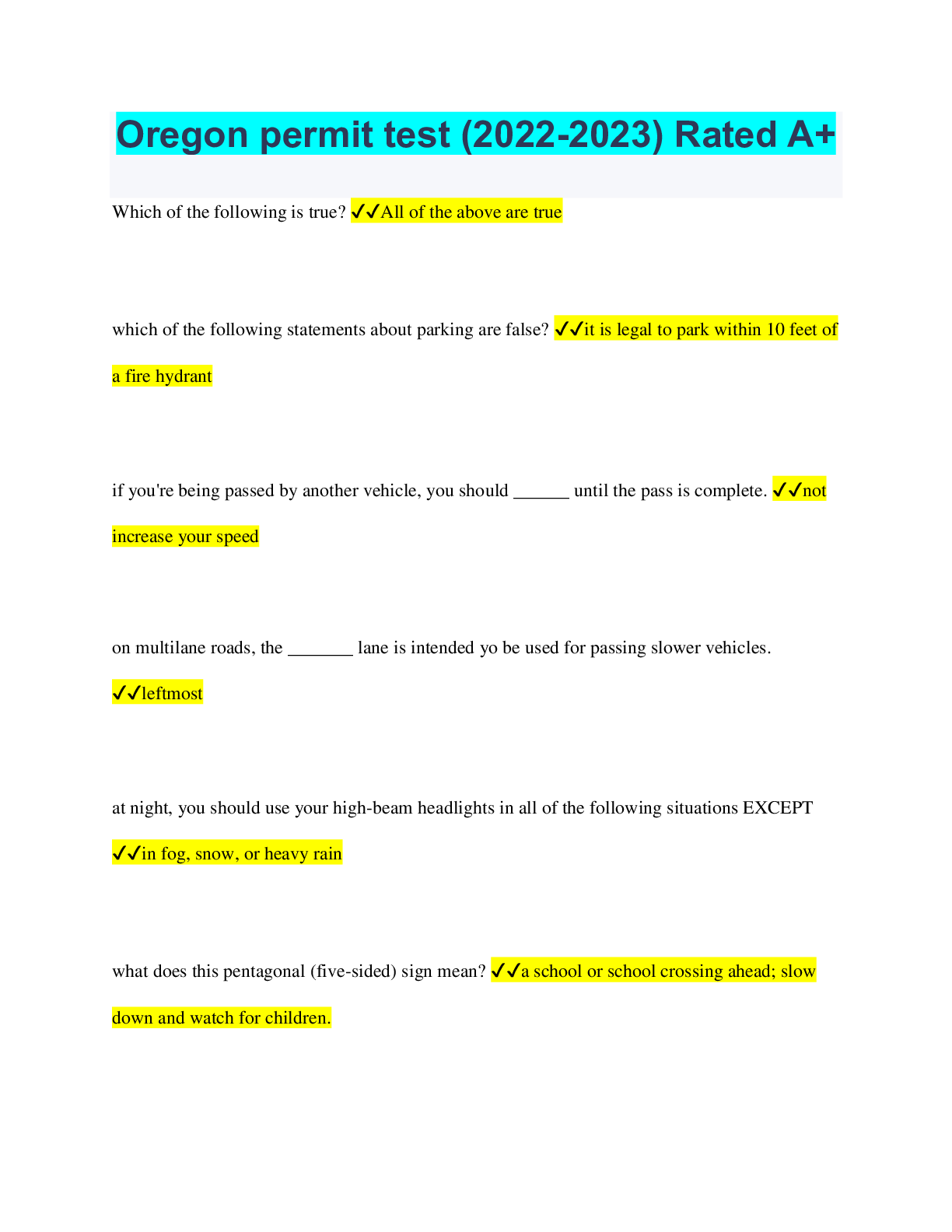
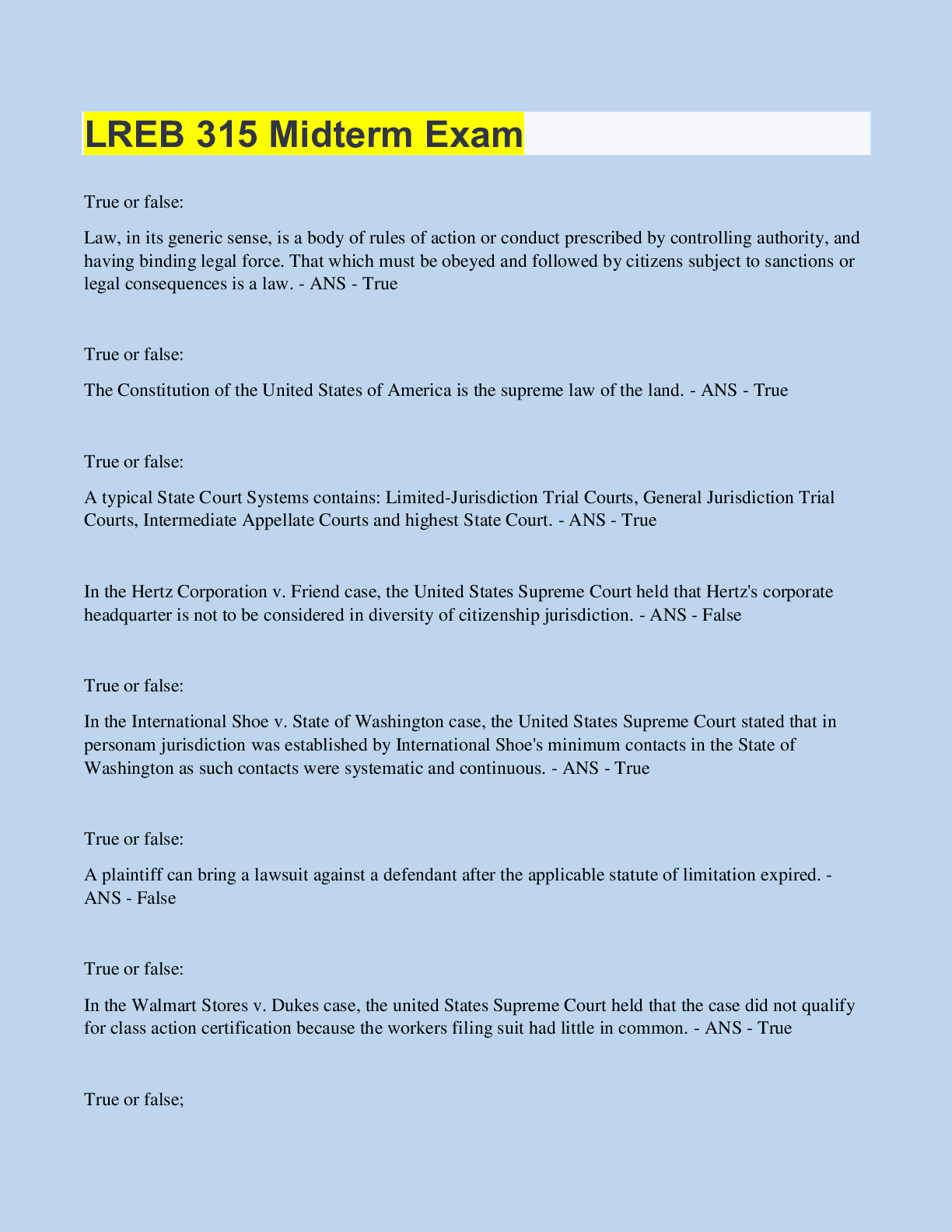
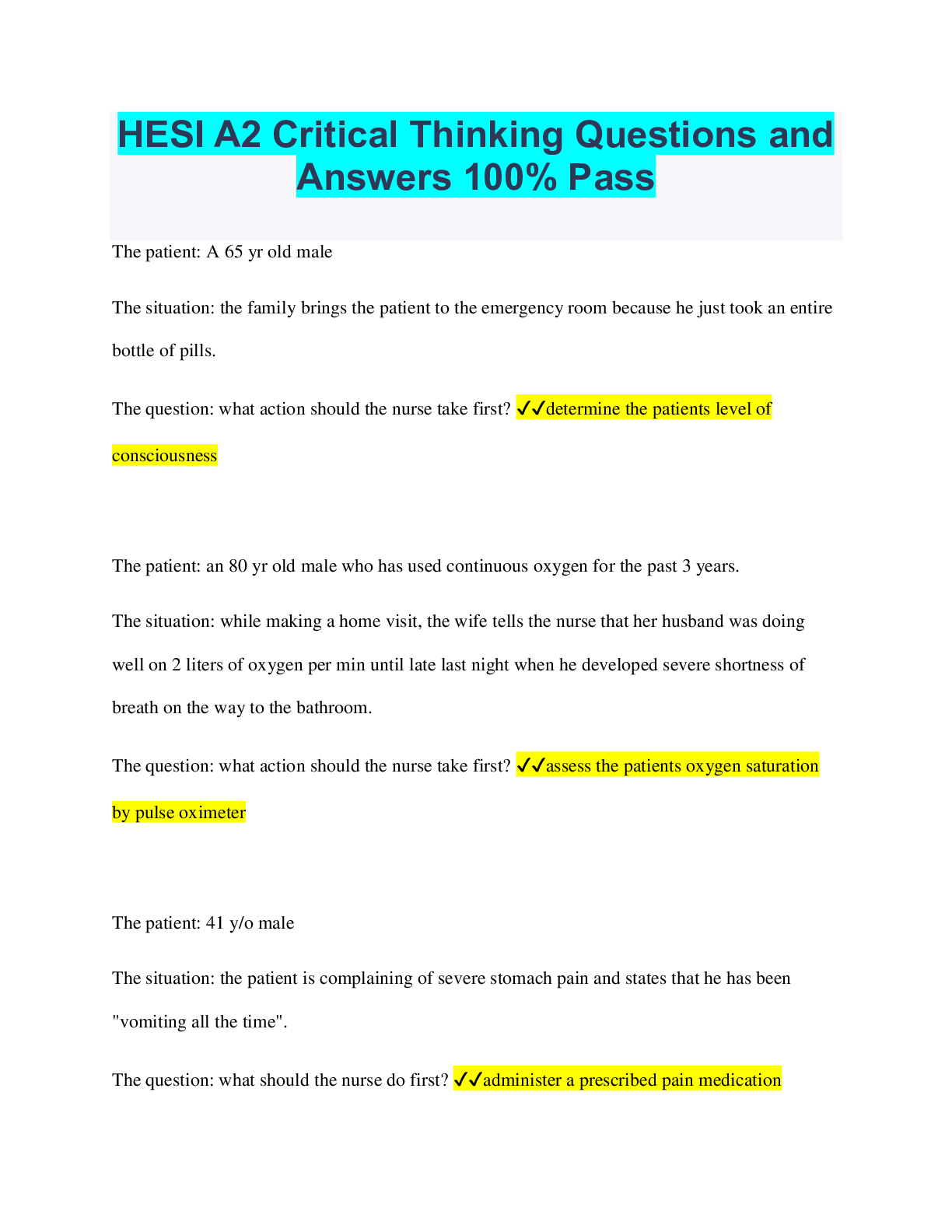
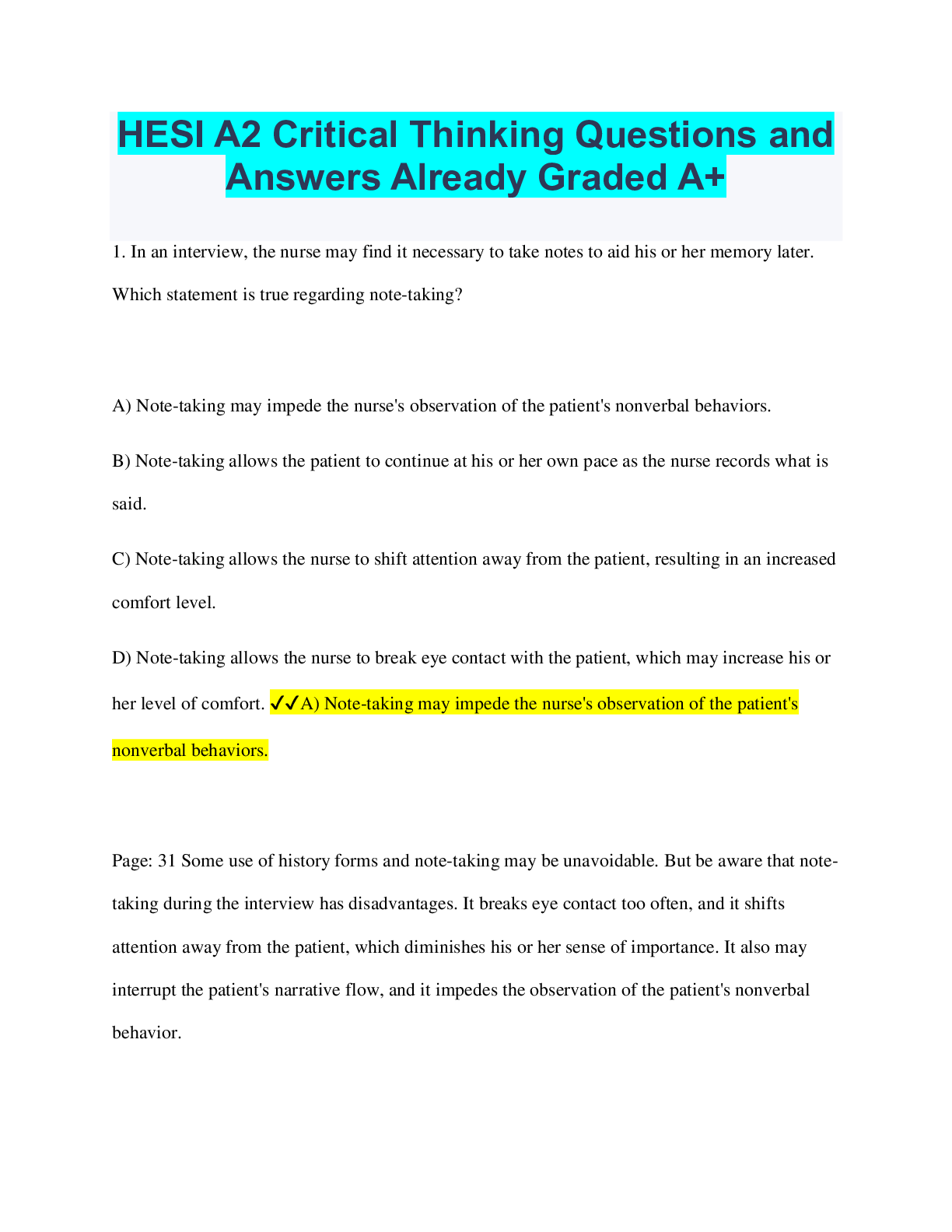
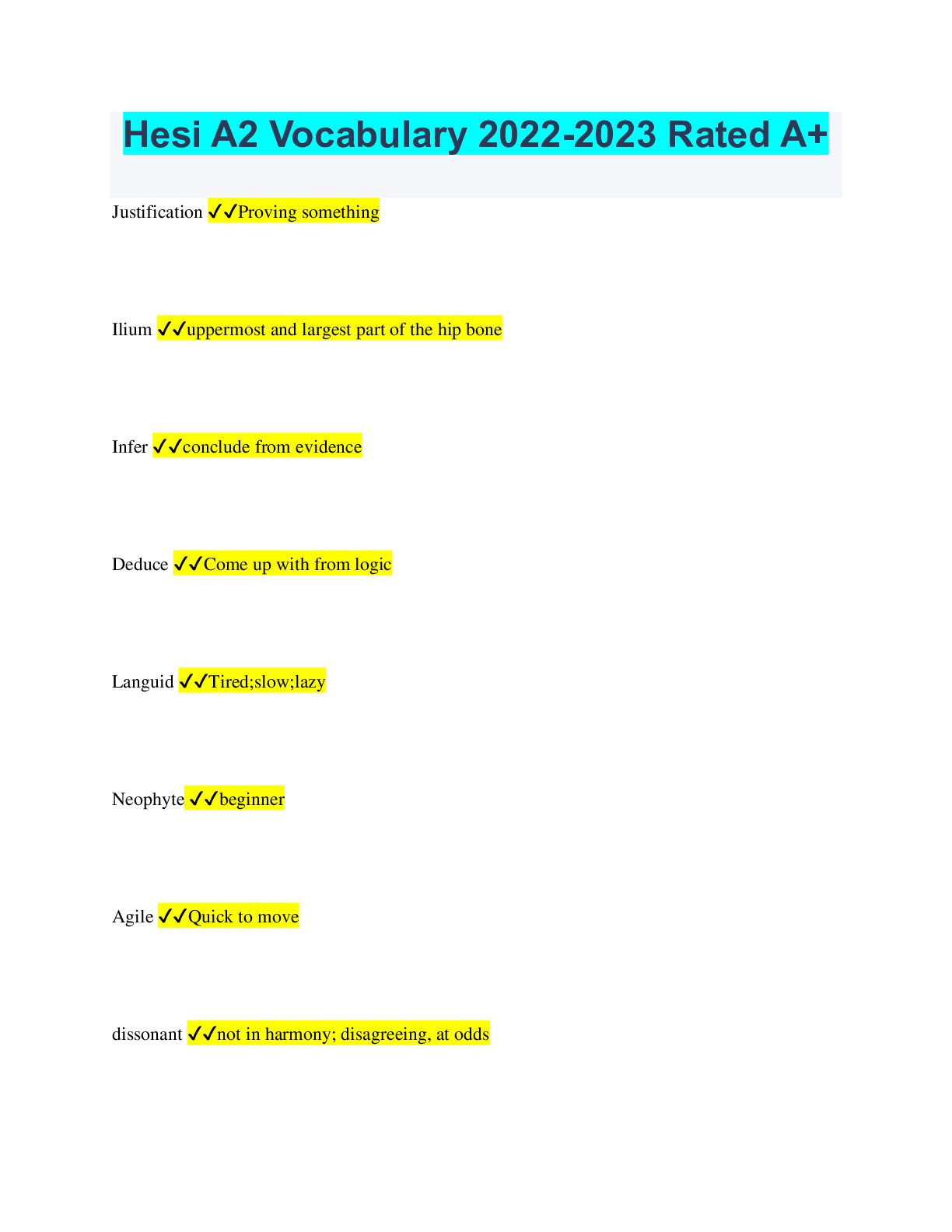
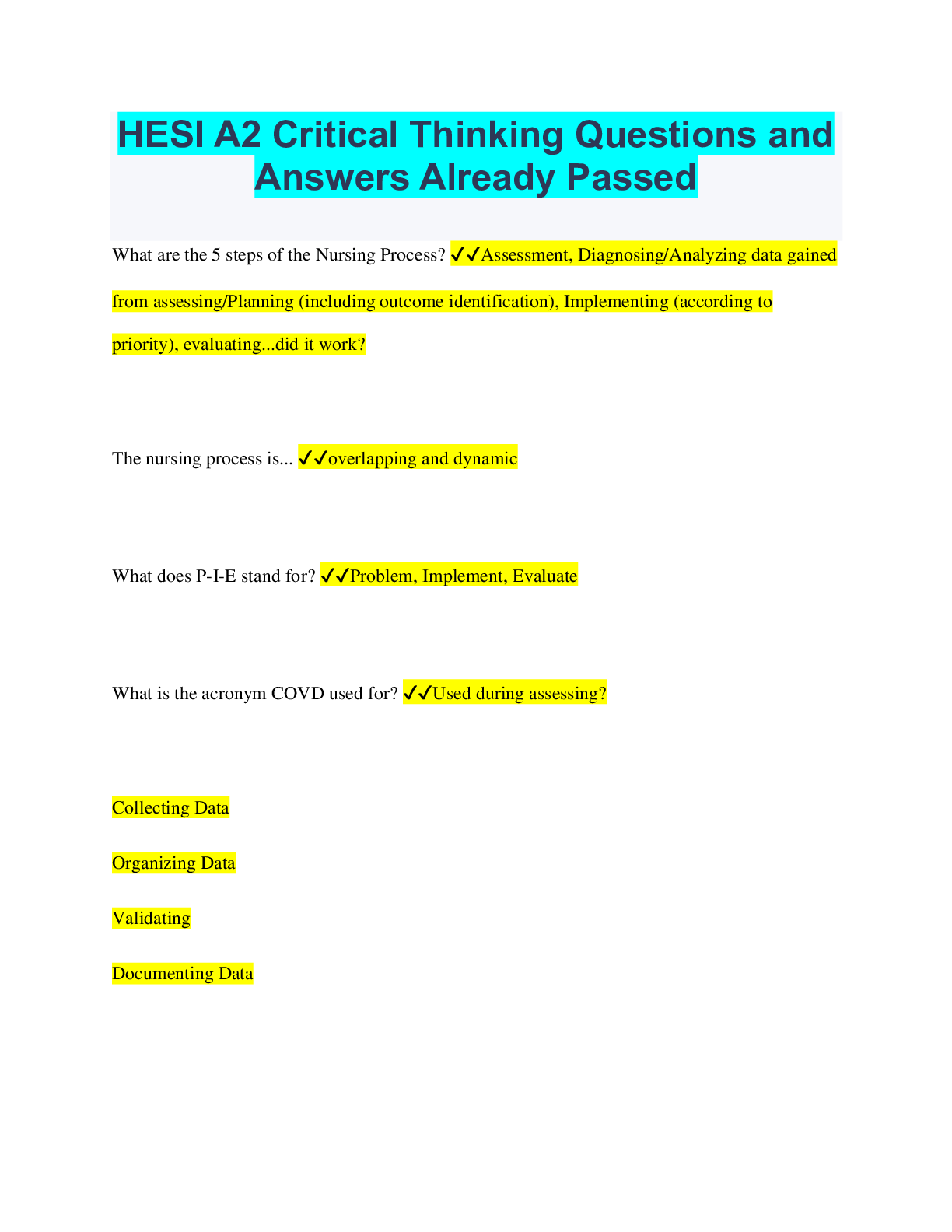
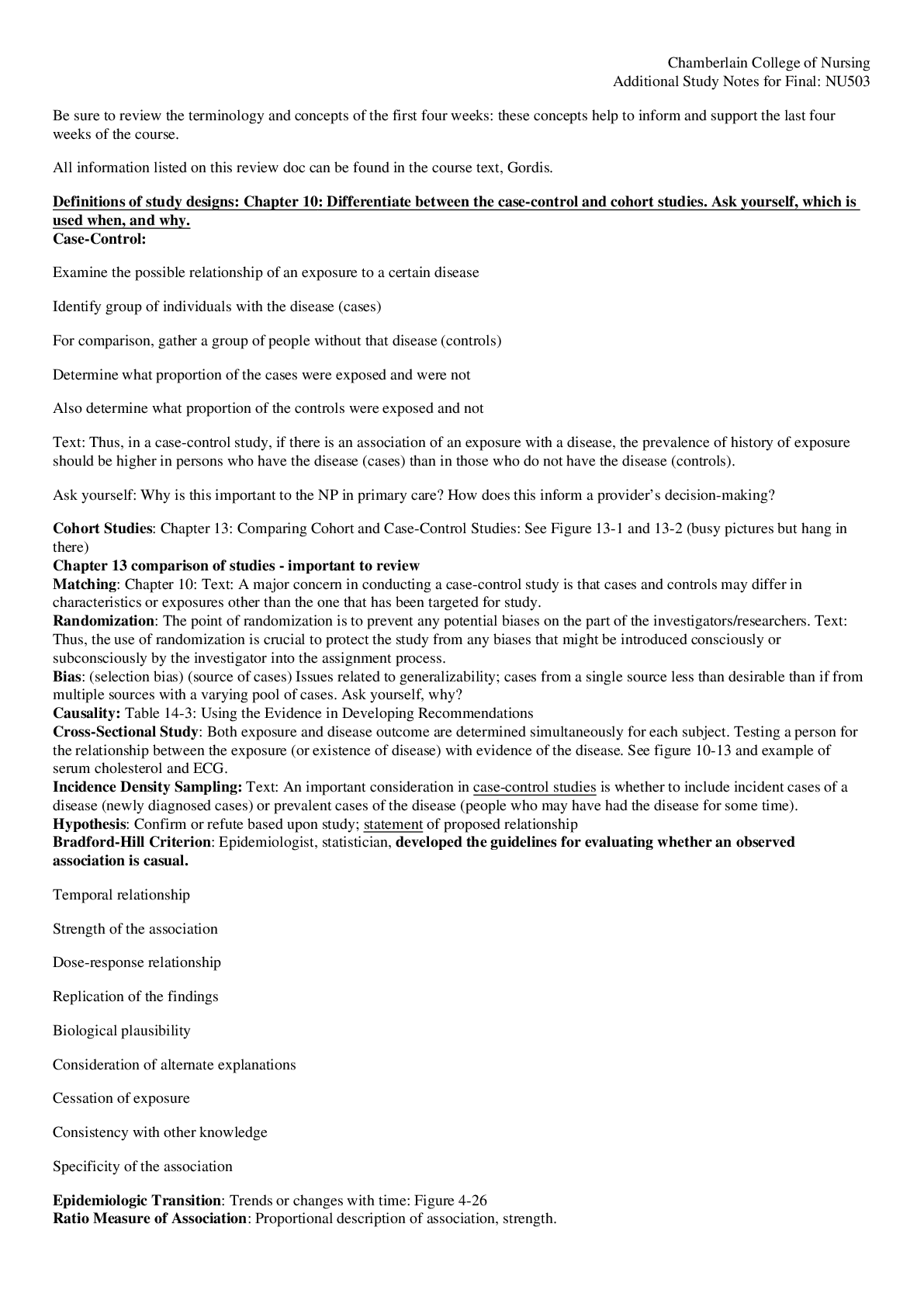



.png)


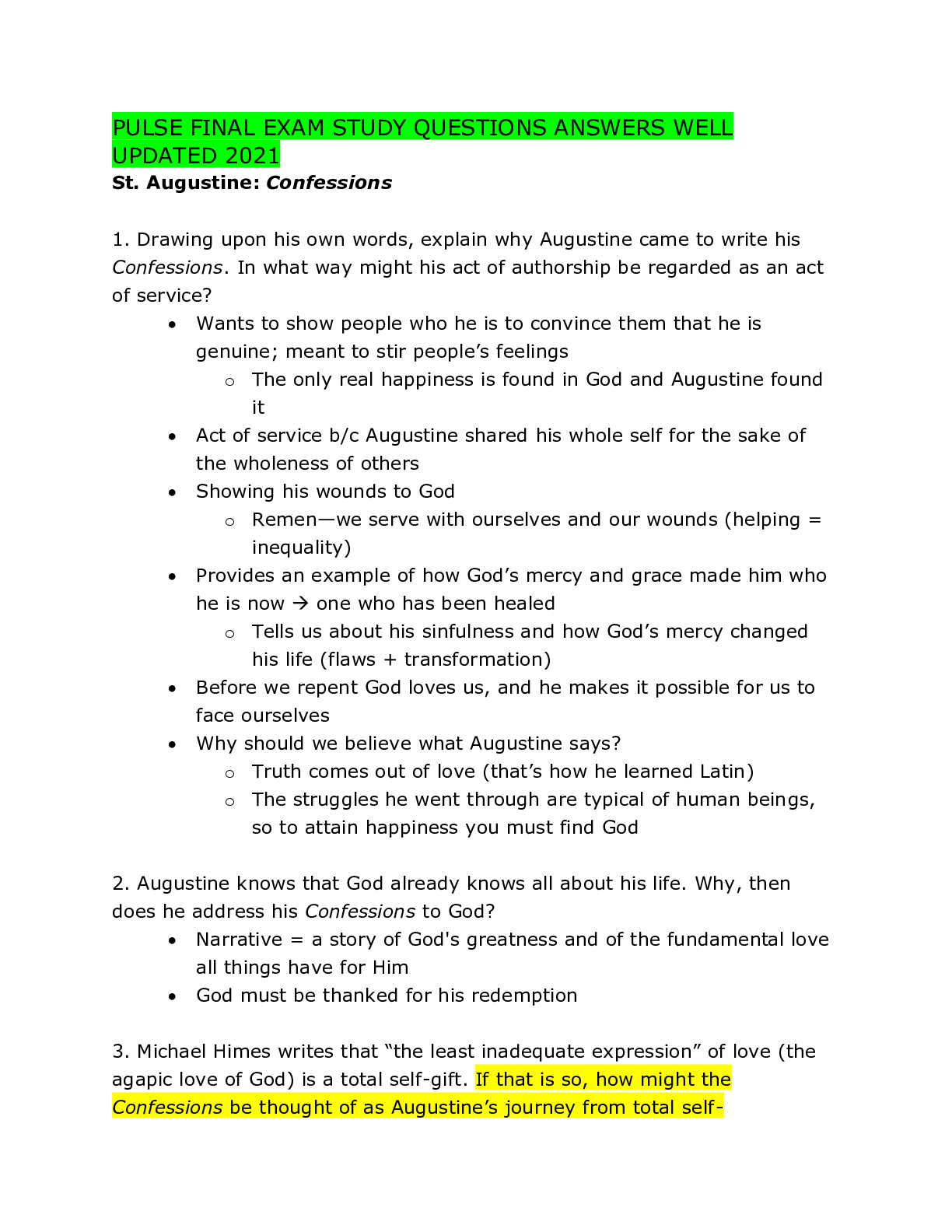



.png)

